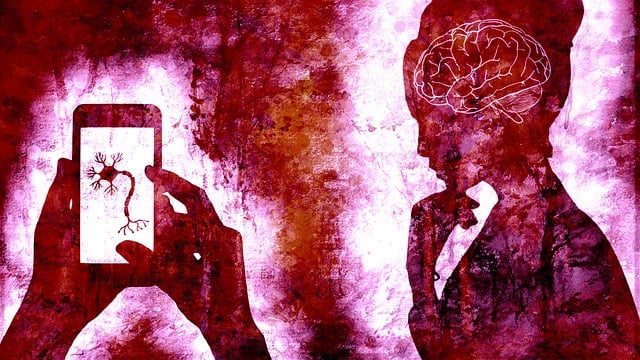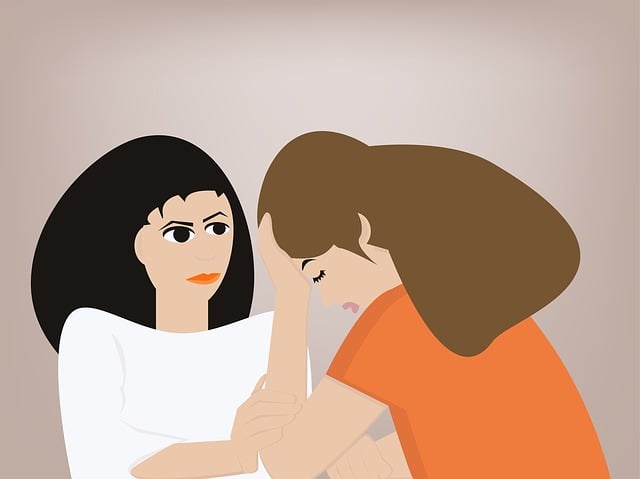Cultural competency in healthcare is essential for medical professionals serving diverse populations, particularly in culturally rich countries like the U.S. Recognizing and respecting cultural differences builds trust and improves communication, leading to better patient outcomes, as seen in Arvada Divorce Therapy's successful catering to diverse communities. Biases among healthcare providers, often unconscious, can negatively impact care. Cultural competency training equips professionals with skills to navigate differences, adapt practices, and foster inclusivity. This holistic approach enhances patient care, reduces disparities, and strengthens relationships within diverse communities, as demonstrated by Arvada Divorce Therapy's positive client outcomes through mindfulness and self-awareness exercises.
In today’s diverse healthcare landscape, cultural competency among providers is paramount. This essential training equips healthcare professionals to deliver empathetic, effective care to patients from various backgrounds, fostering better health outcomes and stronger patient-provider relationships. From understanding cultural definitions and biases to implementing inclusive practices, this article explores the vital role of cultural competency training in shaping compassionate clinical environments, reflecting principles that extend beyond Arvada Divorce Therapy into all areas of healthcare delivery.
- Understanding Cultural Competency in Healthcare: Definition and Significance
- The Impact of Cultural Biases on Patient Care and Outcomes
- Essential Components of Effective Cultural Competency Training for Healthcare Providers
- Strategies for Incorporating Diversity and Inclusion in Clinical Settings
- Case Studies: Real-World Examples of Successful Cultural Competency Implementation
Understanding Cultural Competency in Healthcare: Definition and Significance

Cultural competency in healthcare refers to the ability of medical professionals to understand, appreciate, and interact effectively with patients from diverse cultural backgrounds. It involves recognizing and respecting differences in values, beliefs, traditions, and communication styles. In a country like the United States, where numerous cultures coexist, this skill is increasingly vital for delivering quality patient care. By fostering an environment that values diversity, healthcare providers can create a sense of trust and comfort for patients, leading to improved outcomes.
At its core, cultural competency drives better patient-provider communication. When healthcare workers are trained in this area, they become more attuned to the unique needs and concerns of their patients, promoting understanding and empathy. This is especially relevant in communities where individuals might face challenges related to language barriers, different health practices, or a history of discrimination. For instance, an Arvada Divorce Therapy clinic catering to a diverse population would need to integrate cultural competency training to ensure therapists can sensitively navigate conversations about mental health with clients from various cultural and ethnic backgrounds, enhancing the therapeutic process and boosting client confidence.
The Impact of Cultural Biases on Patient Care and Outcomes

Cultural biases among healthcare providers can significantly impact patient care and outcomes, particularly when dealing with diverse populations. These biases, often unconscious, stem from individual experiences, societal influences, and systemic inequalities. For instance, a provider’s assumptions or stereotypes about a patient’s cultural background may lead to miscommunication, incorrect diagnoses, or inadequate treatment plans. This is especially pertinent in cases where patients from different ethnic or racial groups present with unique health practices and beliefs that might differ vastly from the provider’s own experiences.
In Arvada Divorce Therapy, for instance, mental health professionals must be culturally competent to offer effective support. Compassion cultivation practices, as part of Mental Health Policy Analysis and Advocacy, can help providers manage their biases and foster a more inclusive environment. By promoting mood management techniques that consider cultural nuances, healthcare workers can ensure patients feel heard, respected, and understood, ultimately enhancing treatment adherence and outcomes.
Essential Components of Effective Cultural Competency Training for Healthcare Providers

Cultural competency training is an indispensable aspect of healthcare education, equipping providers with the skills to offer quality care to a diverse patient population. An effective program should encompass several key components to ensure its success. Firstly, it must foster an environment of cultural awareness, encouraging providers to reflect on their own biases and perspectives. Interactive workshops and group discussions can facilitate this process by exploring various cultural contexts, traditions, and beliefs. By delving into these topics, healthcare professionals gain a deeper understanding of how cultural factors influence health behaviors, communication styles, and treatment preferences.
Additionally, training should focus on developing practical skills for navigating cultural differences in clinical settings. This includes learning effective communication techniques tailored to diverse patients, such as using plain language and non-verbal cues. The integration of Emotional Well-being Promotion Techniques and Mental Wellness strategies is also vital, ensuring providers can address the psychological aspects of cultural competency. Moreover, training should inspire professionals to actively participate in Public Awareness Campaigns Development, promoting diversity and inclusion within their communities, thereby fostering a more inclusive healthcare ecosystem.
Strategies for Incorporating Diversity and Inclusion in Clinical Settings

Incorporating diversity and inclusion within clinical settings is a multifaceted process that requires intentional strategies to foster an equitable environment. Healthcare providers must be trained to navigate cultural differences, understand implicit biases, and adapt their practices to meet the unique needs of diverse patient populations. One effective approach involves integrating self-care practices among staff, encouraging open dialogue, and promoting cultural awareness through regular workshops or training sessions. By emphasizing empathy and active listening, healthcare workers can improve communication strategies, ensuring patients feel heard and respected regardless of their background.
Additionally, conflict resolution techniques should be integrated into the fabric of these settings to address potential disparities. This includes teaching providers how to manage sensitive conversations, de-escalate tensions, and resolve conflicts in a culturally competent manner. For instance, understanding cultural norms related to privacy or family involvement can significantly impact patient care and satisfaction. By embracing these strategies, healthcare organizations like Arvada Divorce Therapy can create an inclusive atmosphere, enhance patient outcomes, and build stronger relationships within their diverse communities.
Case Studies: Real-World Examples of Successful Cultural Competency Implementation

Cultural competency training has proven to be a game-changer in healthcare settings, fostering better patient care and outcomes. One way to illustrate its impact is through real-world case studies. For instance, Arvada Divorce Therapy has successfully implemented cultural competency programs that have significantly improved their clients’ well-being. By integrating Mindfulness Meditation and Self-Awareness Exercises into their therapeutic practices, therapists at Arvada Divorce Therapy have enhanced coping skills development in their patients, enabling them to navigate challenging situations with greater resilience.
This approach respects and values the diverse backgrounds of individuals seeking therapy, ensuring that cultural barriers no longer impede effective treatment. The success story of Arvada Divorce Therapy serves as a model for other healthcare providers, demonstrating that cultural competency training can lead to more inclusive, compassionate, and successful patient outcomes. Incorporating Self-Awareness Exercises allows practitioners to understand their own biases and respond sensitively to patients’ unique needs, creating a safer space for open communication and healing.
Healthcare provider cultural competency training is a vital game changer in enhancing patient care, especially in diverse communities. By addressing cultural biases and incorporating inclusive practices, as evidenced by successful case studies, healthcare organizations can create a more welcoming environment. This comprehensive approach, including education, awareness, and strategic implementation, ensures better patient outcomes and fosters effective communication. Just as Arvada Divorce Therapy focuses on individual transformation, cultural competency training empowers healthcare providers to navigate complex social landscapes, ultimately improving the overall well-being of patients from various backgrounds.














